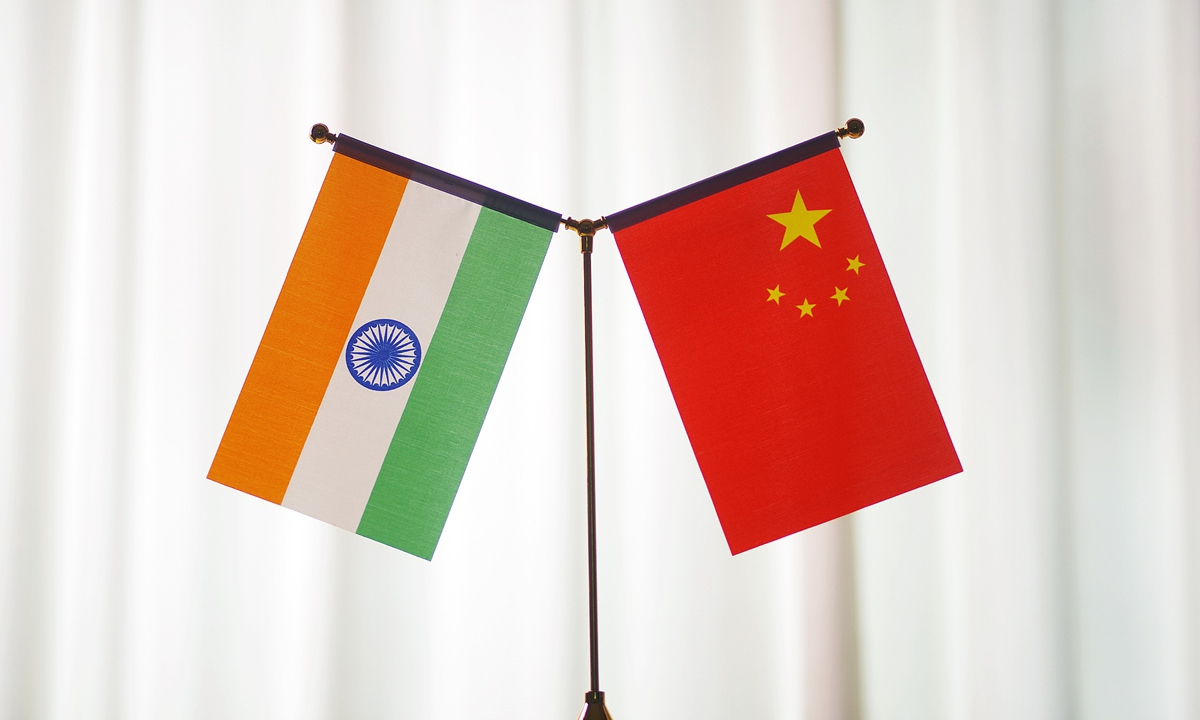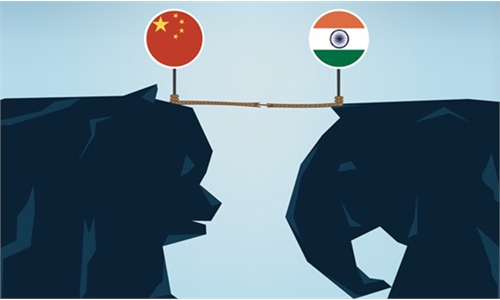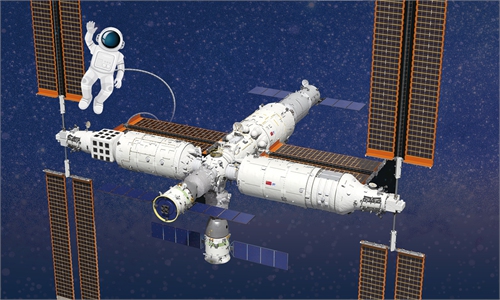
China India Photo:CFP
On Tuesday evening, the joint press release of the 19th round of China-India Corps Commander Level Meeting was released. As I had anticipated, the border standoff since June, 2020 has yet to see a final resolution. However, looking at the joint press release issued shortly after the talks and the wording used therein, it is apparent that there has been relatively positive progress in this round of talks. The two sides agreed to maintain peace and tranquility on the ground in the border areas, and they agreed to resolve the remaining issues in an expeditious manner and maintain the momentum of dialogue and negotiations through military and diplomatic channels.From the joint press release, it can be deduced that this round of negotiations must have taken a considerable amount of time, extending from August 13 to 14. The negotiation table must have witnessed arduous and intense discussions.
One crucial reason behind India's tough stance against China is the backdrop of the geopolitical strategic competition between China and the US, as well as the rapid improvement in India-US relations. India perceives its current position in the triangular relationship of India, China and the US to be analogous to China's position during the Cold War era among the triangular relations of China, the US, and the Soviet Union. A "non-treaty alliance partnership" has emerged between India and the US. Given India's favorable geopolitical circumstances, it believes China needs to ease relations with India so as to deal with the strategic pressure exerted by the US.
India's grand strategy is undeniably clear: It aims to utilize the US to contain China while simultaneously driving the global industry supply chain to shift toward India, achieving economic growth and ascending as a major global power as a result. However, India is also concerned about the escalation of China-India conflicts. Particularly, with India's upcoming general election next year, any further border conflicts would be disadvantageous for Narendra Modi and the Bharatiya Janata Party. At present, India has also noticed that while China-US strategic competition is intense, high-level communication has been sustained between China and the US, and similar interactions persist between China and other Western nations. Due to the border standoff and a series of actions by India regarding China in economic and trade cooperation, cultural exchanges, the Shanghai Cooperation Organization, as well as issues related to Taiwan and the South China Sea, the relationship between India and China has become one of the most tense relationships among major global powers. India perceives this situation as unfavorable.
Moreover, India holds this year's G20 presidency, and the Indian side hopes to showcase its rising power and global status through the G20 summit. If the China-India relationship is in an extremely tense state, it will not be conducive for the Chinese leader's participation, which will greatly impact the success of the G20 summit. In a few days, leaders from both China and India will attend the BRICS leaders' summit in South Africa, and the tense relationship between the two countries will also hinder communication between the leaders.
For China, we have always hoped for stable and developing relations with India. Both China and India hope to peacefully resolve the border issue, but the crux lies in India's obsession and unreasonable demands. After multiple rounds of military commander-level talks, both China and India have disengaged in places like Galwan Valley and the north and south banks of Pangong Lake. However, India keeps repeating that China should restore the situation in the border areas to the so-called status quo before April 2020 as a precondition for easing bilateral relations. The Indian military has maintained a large-scale deployment in the border areas. India's unreasonable demands cannot be met.
From the joint press release, it's clear both China and India, from the perspective of the whole picture of China-India relations, have had a positive, constructive and in-depth discussion and exchanged views in an open and forward-looking manner, indicating that both countries indeed hope to find mutually acceptable ways and means to resolve the remaining issues in the border areas. They are truly moving toward each other and also realizing that the border issue is not the entirety of China-India relations. The two countries should not be trapped or regress due to the border issue, and the border issue should not become a precondition for the development of China-India relations. In this regard, India has a lot to do.
Finally, the joint press release specifically mentions "in line with the guidance provided by the leadership of the two countries," which makes us realize that the leaders of China and India can still play the role of helmsmen in the development of bilateral relations. The direction of China-India relations will not be lost or even collide head-on. Indian Prime Minister Narendra Modi, in order to achieve his domestic and foreign goals, does not want China-India relations to remain deadlocked. Modi hopes to seize the opportunity of strategic competition between China and the US to achieve his strategic pursuits, but he does not want to become a pawn for the US to contain China.
The author is secretary-general of the Research Center for China-South Asia Cooperation at Shanghai Institutes for International Studies, a visiting fellow of the Chongyang Institute for Financial Studies, Renmin University of China, and a distinguished fellow of the China (Kunming) South Asia & Southeast Asia Institute. opinion@globaltimes.com.cn


